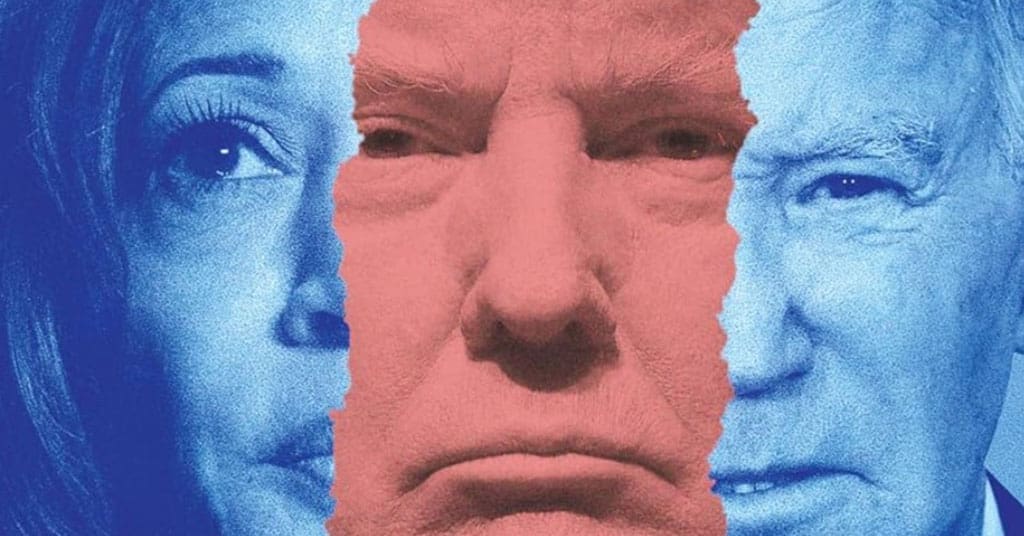Fight offers blistering account of dysfunction, denial and decline at the heart of the Democrats’ re-election bid
The Democrats are in disarray, and the brutal truth of just how bad it got in 2024 is laid bare in Fight, a new campaign chronicle by journalists Jonathan Allen and Amie Parnes. A gripping and often damning account of the internal chaos that defined the Democratic Party’s re-election efforts, the book reveals deep fractures, strategic failures, and a cast of characters clinging to power, prestige or simply denial. If you’re looking for heroes, you won’t find many.
Reading it brought to mind another era of campaign writing—one that began with Teddy White’s The Making of the President 1960. Subtitled “A narrative history of American politics in action,” it created quite a stir in its day, becoming both a commercial and critical hit. It spent months on the bestseller lists and won a Pulitzer Prize.
White’s novelistic approach was one of the things that made the book so fresh and readable. True to his promise of a “narrative,” you were drawn into a story with character portraits that gave you the sense of getting to know the major protagonists. All the while, events were imbued with a touch of drama, even though you already knew how it was all going to end.
And like most popular novels, it had a hero, in this case John F. Kennedy. You might even call it a love letter to JFK.
White went on to chronicle subsequent presidential campaigns, but never with quite the same impact as that first volume. And his third, The Making of the President 1968, generated some sour critical notes because of its treatment of the winner, Richard Nixon. While not a heroic portrayal in the JFK mould, White’s rendering was deemed inappropriately sympathetic.
By then, other writers were getting into the act, sometimes with different approaches. One of the most notable was Joe McGinniss, a young guy in his mid-20s who produced The Selling of the President 1968. Published to great acclaim and focusing on the Nixon campaign, the McGinniss book couldn’t be remotely described as hero worship. Quite the contrary.
McGinniss painted the campaign’s strategy as image over substance, with manipulative advertising promoting an unworthy figure to the White House. A dozen years earlier, Vance Packard’s The Hidden Persuaders had depicted commercial advertisers using subtle psychological techniques to create demand. And McGinniss saw Nixon’s election as an example of the same thing transposed to a political setting.
Like many others, I was an avid reader of these campaign books for a long time, only tailing off after the arrival of internet-facilitated saturation coverage. After all, what more was there to be said?
But 2024 was so tumultuous that I decided to give another one a try. And the first to come to my attention was Fight.
Joe Biden is portrayed as living in a bubble, a president whose personal decline was covered up by an inner circle determined to get him over the re-election line, even if he had to be carried. His wife and family are among the subterfuge’s prime culprits.
Barack Obama gets marks for perspicacity in concluding that neither Biden nor Kamala Harris could defeat Donald Trump, and thus both needed to be removed. But he also appears as someone not willing to put his personal prestige on the line to effectuate it.
In a particularly pungent section, the authors express it this way: “Obama didn’t want to get his own hands dirty—couldn’t face leaving bloody fingerprints on Biden’s political corpse—but he hoped others would shoulder the wet work.”
Former House Speaker Nancy Pelosi was another prominent Democrat who wanted both Biden and Harris gone. Her approach is described as “asphyxiation.” Privately, she refused to defend Biden’s candidacy; publicly, she coyly teased her lack of support. But nobody, least of all Biden, was fooled, as a consequence of which she became the primary target of his bitterness.
As for Harris, she was simply out of her depth. Despite having run for president in the 2020 cycle and served as vice-president for an elderly incumbent, she had great difficulty articulating a rationale for her candidacy.
“Unlike Trump, Harris required intensive prep sessions before major interviews, taking time over multiple days to get ready … Softball interviews only served to underscore the idea that she was hiding from scrutiny … She wasn’t performing well in easy interviews. And at the same time, if she wanted to expand her support—which she needed to do—she would have to expose herself to tough questioning.”
Later on, when Harris privately argued that her problem was not having enough time, one of her advisers took a contrary view.
“We were holding sand in the palm of our hand, and it was slipping out of the fingers slowly. I don’t think we needed more time. We needed more sand. We needed more substance. And she did not have more substance.”
Democrats really need to do better the next time.
Troy Media columnist Pat Murphy casts a history buff’s eye at the goings-on in our world. Never cynical – well, perhaps a little bit.
Explore more on USA, U.S. Politics, Politics in Books
The views, opinions, and positions expressed by our columnists and contributors are solely their own and do not necessarily reflect those of our publication.
Troy Media empowers Canadian community news outlets by providing independent, insightful analysis and commentary. Our mission is to support local media in helping Canadians stay informed and engaged by delivering reliable content that strengthens community connections and deepens understanding across the country.




